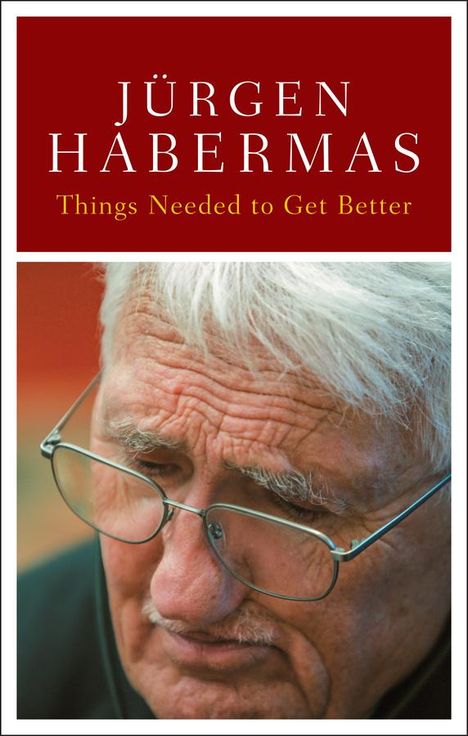Jürgen Habermas: Things Needed to Get Better, Gebunden
Things Needed to Get Better
- Conversations with Stefan Müller-Doohm and Roman Yos
(soweit verfügbar beim Lieferanten)
- Übersetzung:
- Wieland Hoban
- Verlag:
- Polity Press, 01/2026
- Einband:
- Gebunden
- Sprache:
- Englisch
- ISBN-13:
- 9781509567270
- Artikelnummer:
- 12332367
- Umfang:
- 196 Seiten
- Gewicht:
- 363 g
- Maße:
- 221 x 147 mm
- Stärke:
- 22 mm
- Erscheinungstermin:
- 27.1.2026
- Hinweis
-
Achtung: Artikel ist nicht in deutscher Sprache!
Klappentext
In this book Jürgen Habermas offers a wide-ranging reflection on his life and work and on the factors that shaped the development of his thought. He discusses the motives behind his work, the circumstances under which it emerged and the changes it has undergone over the course of his long and productive career. He speaks about the events and the texts that played a decisive role in his thinking and he recounts key encounters with colleagues. The image that emerges is that of a richly intertwined network of relationships which covers large swathes of the intellectual map of the twentieth century and reaches through to the present day.
Looking back at the development of his thought, Habermas discusses the specific historical circumstances that shaped his generation, identifies key experiences with his intellectual mentors, explores recent historical tendencies and political beliefs and talks about his own scholarly works and their reception. Time and again we see the normative impulse that lies behind so much of Habermas's work: 'I view the attempt to make the world even the tiniest bit better, or even just to be part of the effort to stave off the constant threats of regression that we face, as an utterly admirable motive.'
This autobiographical self-reflection by one of the greatest philosophers of our time will be of interest to a wide readership.
Biografie (Jürgen Habermas)
Der 1929 in Düsseldorf geborene deutsche Philosoph und Soziologe Jürgen Habermas studierte Philosophie, Geschichte und Psychologie in Göttingen, Zürich und Bonn, wo er 1954 promovierte. Von 1956 bis 1959 war er Assistent am Institut für Sozialforschung in Frankfurt am Main. und nahm dort wesentliche Impulse der Frankfurter Schule auf. Aus ihrer Tradition hat er die seine weiteren Arbeiten strukturierende Fragestellung entwickelt, wie eine kritische Theorie der Gesellschaft beschaffen zu sein habe, die eine dem erreichten Stand sozialwissenschaftlicher Erkenntnis wie historischer Erfahrung angemessene Theorie der Demokratie darstelle. 1961 habilitierte er in Marburg und wurde auf ein Extraordinariat für Sozialphilosophie nach Heidelberg berufen. 1964 erhielt er eine Professur für Philosophie und Soziologie in Frankfurt am Main. 1971 wurde er, gemeinsam mit Carl-Friedrich von Weizsäcker, Direktor des neu gegründeten "Max-Planck-Instituts zur Erforschung der Lebensbedingungen der wissenschaftlich-technischen Welt" in Starnberg. 1982 folgte Habermas dem Ruf nach Frankfurt am Main auf eine Professur für Soziologie und Philosophie. 2001 wurde er mit dem Friedenspreis des Deutschen Buchhandels ausgezeichnet.

